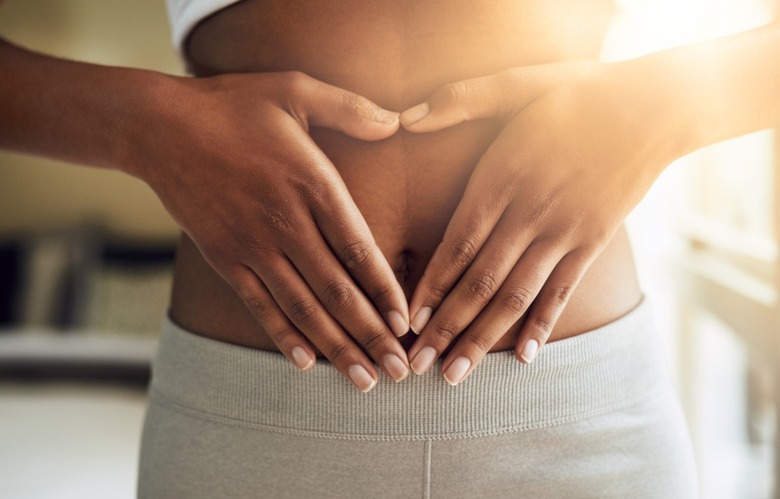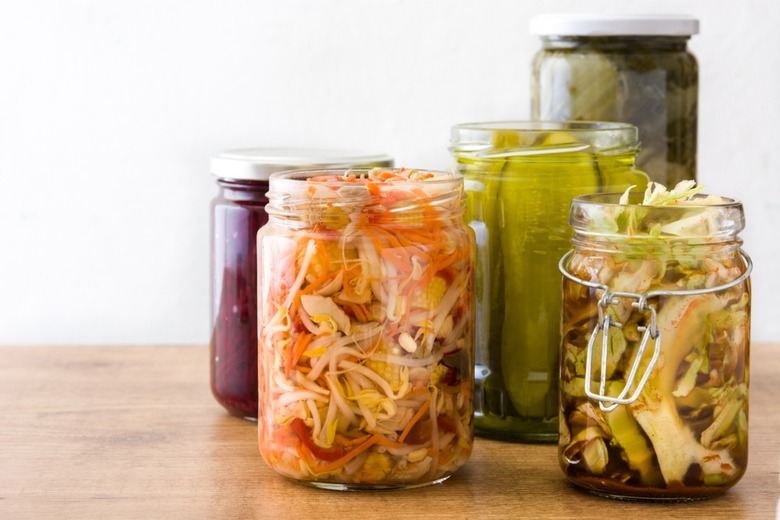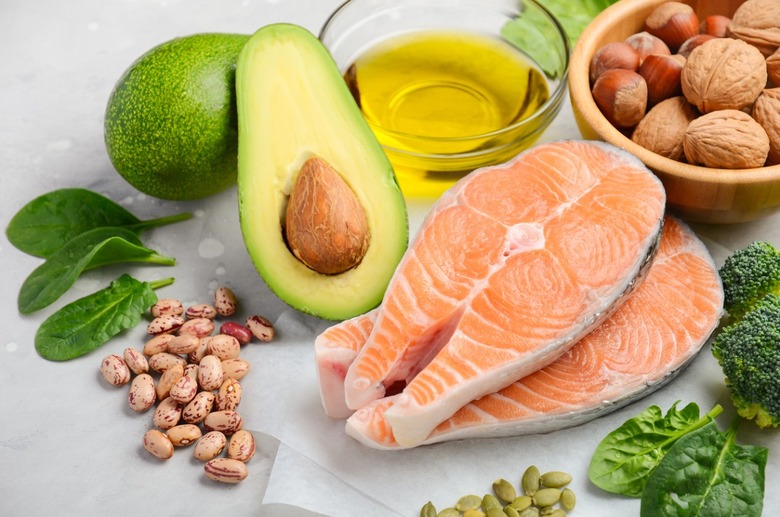This Is What Happens To Your Body When You Quit Dairy Gallery
Dairy was once the darling of the nutrition world (remember all those "Milk: It Does a Body Good" ads from the '80s?), but lately seems to have fallen out of dietary fashion. You're not alone if you're ever contemplated ditching dairy. Some people choose to eliminate it for ethical or medical reasons, and some simply feel better when they don't consume it.
We spoke with nutritionists, and they all agreed that dairy can be part of a healthy diet. Keri Gans, MS, RDN, CDN and author of "The Small Change Diet" tells The Daily Meal that "There is no reason to give up an entire food group unless there is a medical reason to do so. A well-balanced diet provides all the nutrients, micro and macro, that our body needs to perform at its best."
Courtney Ferreira, a registered dietitian and personal trainer in Baltimore, believes that though many people choose to cut dairy, it's not inherently bad. "If your gut can handle dairy but you're concerned about inflammation, as with all animal products and byproducts, choose organic options when possible. These choices will have the most anti-inflammatory fat profile."
But if you are thinking of eliminating it from your diet, there are some very real effects to consider when you go cold turkey (cold cow?). Read on to find out what really happens to your body when you quit dairy.
You May Feel Less Bloated
Dairy can cause issues for some people, and according to Cheryl Mussatto, MS, RD, LD, one uncomfortable annoyance can be bloating. "This is usually associated with lactose intolerance — those who are lactose intolerant can experience bloating and gas, sometimes stomach pain, diarrhea and cramps." But completely avoiding dairy doesn't have to be the answer. "Simply consuming less of dairy foods can often ease up symptoms. For others with conditions like Crohn's disease or celiac disease, cutting back on dairy can help relieve many of their unpleasant symptoms."
You May Feel More Bloated
On the other hand, if you replace dairy with soy alternatives (such as soy milk, soy creamer, and soy cheese), you may become even more bloated. Non-dairy alternatives can be loaded with starches and gums that are difficult to process, says Ariane Resnick, CNC. She believes that "the worst culprit is Daiya cheese (which is also the most widely available option, sadly). It's made of water, starch, and oil." Many smaller brands have come up with healthier options, so keep searching until you find what works best for you.
Skin Conditions Clear Up
Cheryl Mussatto explains that skin concerns (such as breakouts, eczema, and psoriasis) are another area where dairy is often blamed. "This has been debated for years by dermatologists," she says. Much of the milk on grocery shelves is commercially processed and comes from perpetually impregnated cows. It contains bovine growth hormone, which can aggravate the skin. If a person finds a particular food that triggers or aggravates a skin condition, she advises them to work with a dietitian. There may be no quick fixes for skin issues, but "sometimes an elimination diet under the guidance of a registered dietitian may be able to definitively answer the question of what's really going on," she explains.
Increased Risk for Osteoporosis and Fractures
Calcium and vitamin D are crucial for bone health, and dairy is an excellent source of both, explains Keri Gans. By eliminating them, "you may put yourself at an increased risk for osteoporosis and bone fractures," she tells The Daily Meal. There are many non-dairy milk alternatives available, including almond, soy and oat, but be sure to read labels to ensure they are fortified with these important nutrients. She adds that "dark-green leafy veggies contain calcium, but you would need to consume rather large quantities to get the same amount you would from a typical dairy serving."
Your Risk of Heart Disease May Increase Slightly
People who consume more than one glass of milk a day may be less likely to develop heart disease than those who don't drink milk. According to a study recently published in The Lancet, "Dairy consumption was associated with lower risk of mortality and major cardiovascular disease events in a diverse multinational cohort."
Sinus Congestion Clears Up
If you suffer from frequent congestion, removing dairy from your diet may give you some relief. Casein is a naturally occurring protein found in dairy products, and it can promote mucus formation. Ariane Resnick explains that it's "likely you'll experience less mucus when you cut it out. This is true regardless of how well you process dairy foods or if you're lactose intolerant."
You Might Need to Add in More Probiotics
Probiotics are live microorganisms that support and restore the good gut flora that already live in your lower intestinal tract. They're commonly found in yogurt, some cheeses, and many fermented foods. Keri Gans notes that "dairy is a good source of probiotics, so without a daily dose you may consider adding other foods, such as miso, kimchi, kombucha, or a non-dairy probiotic drink."
You Might Gain Weight
No two bodies are alike, and while some people may drop a few pounds after giving up dairy, cutting out this major food group may possibly contribute to weight gain in others. Cheryl Mussatto explains her view: "I err on the side that dairy foods can help with weight loss. In fact, because full-fat dairy contains more calories, it helps a person feel satiated longer and less likely to overeat." In one of her recent articles, she points out that studies have shown a correlation between reduced metabolic syndrome and milk consumption.
You Might Lose Weight
Weight loss might simply be explained by the fact that by cutting out a major food group (but not replacing it with anything else), you'll be taking in less calories overall. Weight loss after giving up dairy may also be tied to how much (and what type) of dairy foods you ate before giving it up. If you regularly indulged in cheesy pasta and pizza but then replaced those items with healthier, dairy-free options, that could also explain the change in the number on the scale. Perceived weight loss could also be tied to the reduction in bloating that often accompanies a newfound dairy-free lifestyle.
You Might Miss Out on Essential Nutrients
Dairy foods, including milk, cheese, yogurt and cottage cheese, all provide important nutrients and can be part of a healthy diet, according to Cheryl Mussatto. "These foods are rich sources of protein, vitamin D, and calcium, a critical mineral for bone health." She cautions that if a person is going to completely eliminate dairy from their diet, it's important to know how to replace these nutrients: "Dark leafy greens like kale and collard greens and fatty fish like sardines and canned salmon are good non-dairy sources of calcium." Incorporating new ingredients into your meals, like veggies and seafood, can be a breeze when you're armed with healthy, foolproof recipes.
More From The Daily Meal:
How to Stop Feeling Insecure in Your Body
This Is What Happens to Your Body When You Quit Carbs
25 Meal Ideas for When You Just Can't Eat Another Salad










